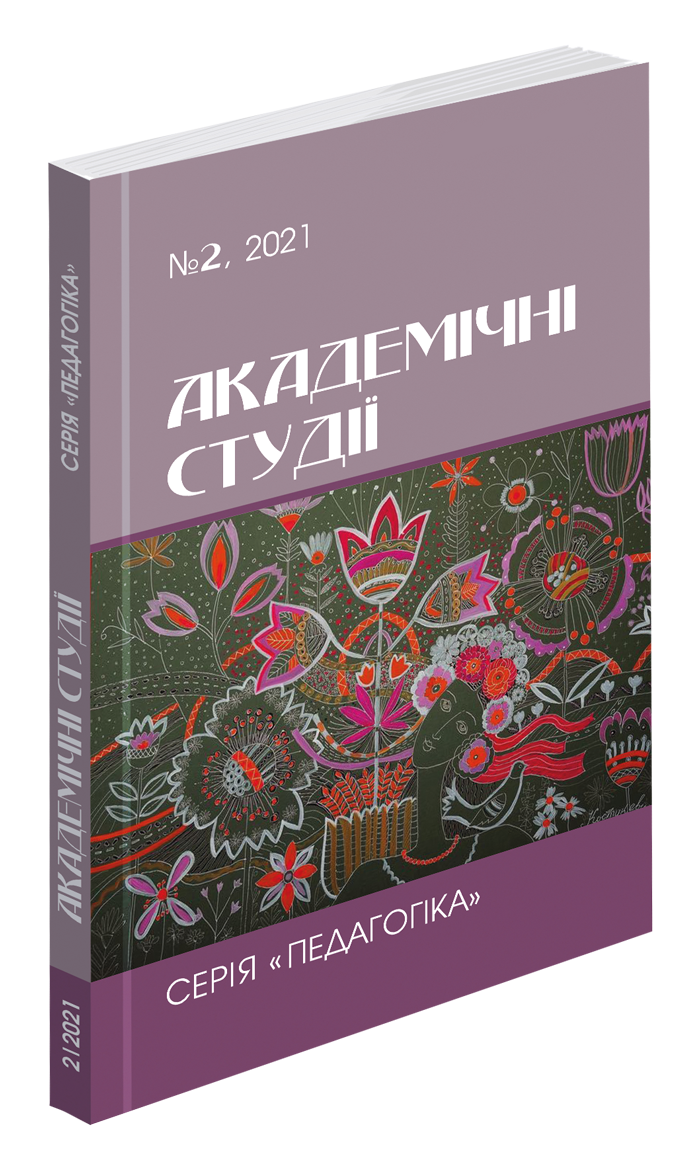Abstract
The article defines the essence of professional development of musical art bachelors. The specifics of vocal-ensemble training of students in the process of creative activity are highlighted, which provides a combination of the theoretical knowledge and practical skills, acquisition of the necessary professional competencies. The main pedagogical principles of vocal-ensemble training of bachelor's degree students are introduced. The use of the proposed pedagogical principles will contribute to the effective preparation of bachelors to lead vocal ensembles, also it will ensure the realization of the creative potential of future leaders of musical ensembles. The main pedagogical principles of vocal-ensemble training of musical art bachelors are: the principle of unity of collective music making, the principle of systematic vocal-professional orientation, the principle of integrity of vocal-ensemble development, the principle of creative image, the principle of artistic and aesthetic performance interpretation of a musical work, the principle of artistic and creative self-realization, the principle of musical taste stimulating. Emphasis is placed on the expediency of systematic use of methodological techniques in work with a vocal ensemble, which allow students to develop not only vocal and technical skills, but also the skills of artistic expression. The readiness of musical art bachelors for practical activities with a vocal ensemble is determined by a high level of music-theoretical and vocal-ensemble knowledge, practical and methodological skills, ability to use modern interactive technologies. It is proved that only the comprehensive provision of pedagogical principles can become the basis of high-quality vocal-ensemble training and the formation of artistic-performance experience in musical art bachelors.
References
Бітько Н.Г. Педагогічні принципи розвитку вокального мислення майбутніх учителів музичного мистецтва. Актуальні питання мистецької освіти та виховання : наукове видання. Суми : ФОП Цьома С. П., 2019. Вип. 1–2 (13–14). С. 157–167.
Гончаренко С. Український педагогічний словник. Київ : Либідь, 1997, 366 с.
Негребська О. Педагогічні принципи викладання в мистецькій школі. Інтеграція освіти, науки та бізнесу в сучасному середовищі: зимові диспути: тези доп. II Міжнародної науково-практичної інтернет-конференції, 4-5 лютого 2021 р. Дніпро, Україна, 2021. Т. 2. 479 с.
Падалка Г.М. Акмеологічна арт-педагогіка: предмет, принципи, методичні підходи. Науковий часопис Національного педагогічного університету імені М. П. Драгоманова. Серія 14: Теорія і методика мистецької освіти : збірник. Київ : Вид-во НПУ ім. М. П. Драгоманова, 2010. Вип. 10 (15). С. 9–14.
Падалка Г.В., Зайцева А.В. Культурологічні виміри проективного моделювання мистецької освіти. Культура і сучасність : альманах. № 1. Київ : ІДЕЯ ПРИНТ, 2020. С. 3-6.
Irene Velsvik Bele. (2008). The Teacher’s Voice: Vocal training in teacher education. Scandinavian Journal of Educational Research 52:1, pages 41-57.
Berezovska Liudmyla, Kondratska Galyna, Zarytska Anna, Volkova Kateryna & Matsevko Taras (2020). Introduction of New Forms of Education in Modern Higher and Vocational Education and Training. International Journal of Higher Education, Vol. 9, No. 7. 107-118. URL: https://doi.org/10.5430/ijhe.v9n7p107 (дата звернення: 26.03.2021).
